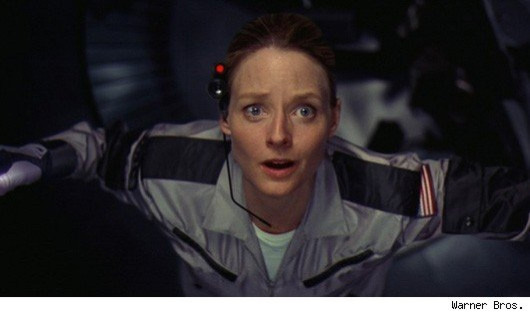Poetry On Mars: NASA Solicits Haikus For Martian Orbiter Launching In November

Mars needs poets!
NASA hasn’t reached the point where it’s sending bards up alongside the physicists and pilots, but it does want to send up three haikus along with its latest Red Planet-bound spacecraft. The Mars Atmosphere and Volatile Evolution orbiter, which is the first probe to focus on the Martian upper atmosphere, is launching in November. In addition to its scientific instruments, Maven will be carrying a DVD with names and messages in the form of haikus.
Soliciting haikus from the public “offers people worldwide a way to make a personal connection to space, space exploration, and science in general, and share in our excitement about the Maven mission," said Stephanie Renfrow, a spokeswoman for the University of Colorado at Boulder's Laboratory for Atmospheric and Space Physics, which is coordinating public outreach for the Maven mission.
To get your haiku on board the orbiter, you’ll have to beat out the competition. Maven is packing light, so there’s only room for three poems.
You can submit poems until July 1, after which there will be a public vote to determine which haikus make the cut.
For inspiration, you might want to study some other poems about space and celestial phenomena. Here are a couple of suggestions to get your quill scratching or keyboard tapping:
Albert Goldbarth’s “wacky, talky fat poetry” (per Slate) frequently makes use of scientific imagery. His first collection, in 1973, was even called “Copralites,”also known as the word that means fossilized pieces of poop. His 1988 poem “The Multiverse” has some thrilling lines about futuristic space travel:
“As a ship, in sinking, sucks whatever flotsam
fills the widening mouth of the cone of its disappearing,
under with it (a liner even taking small boats): so,
of course, a space ship x’ing into hyperspace takes
everything in a certain range of the skin of this universe
with it, to that otherskin …”
There’s also a collection of poems inspired by the Mars rover missions at the site Astropoetry. Here’s a selection from “One Thousand Sunsets,” by Stuart Atkinson:
“One thousand sunsets have I seen,
One thousand blue dawns too;
One thousand nights of knife-sharp cold
Have I endured to send you images
Of Barsoom’s beautiful burgundy peaks,
Its rubble, rocks and stones,
All scoured by dust, once under cool water
But now dry as fire-flensed bones.”
And of course, budding scribes may want to look beyond Mars as well. For a poetic look at the bigger picture, there’s always the classic Monty Python number “The Galaxy Song,” originally featured in the 1983 film “The Meaning of Life”:
“Just remember that you're standing on a planet that's evolving
Revolving at nine hundred miles an hour
That's orbiting at nineteen miles a second, so it's reckoned
A sun that is the source of all our power
The sun and you and me and all the stars that we can see
Are moving at a million miles a day
In an outer spiral arm, at forty thousand miles an hour
Of the galaxy we call the Milky Way.”
But when writing your own poem for NASA, remember the haiku form: three lines, alternating between 5 syllables, 7 syllables, and 5 syllables!
© Copyright IBTimes 2024. All rights reserved.





















